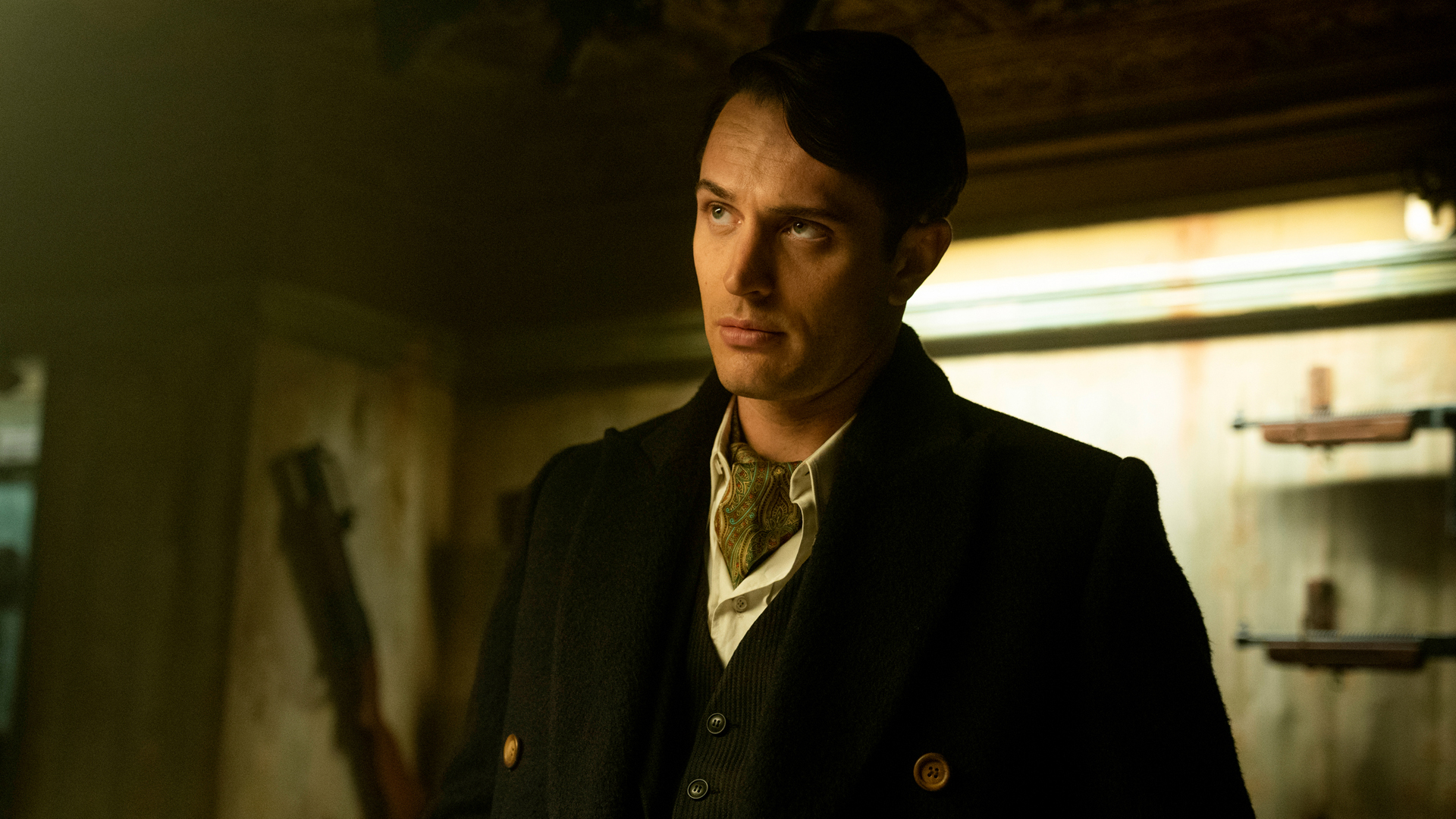
Sign up for breaking news, reviews, opinion, top tech deals, and more.
You are now subscribed
Your newsletter sign-up was successful
The John Wick franchise is a classic Hollywood underdog tale. The neo-noir action film series, which began life as a Summit Entertainment indie darling, has grown into a billion-dollar-making, Lionsgate-distributed franchise in less than a decade. Fronted by beloved actor Keanu Reeves, it’s wowed audiences with stunningly choreographed combat, a simple but engrossing tale, and intriguing world-building.
Now, the franchise faces a new challenge: fleshing out its storied universe without its main star. The Continental: From the World of John Wick is the series’ TV spin-off charged with capturing the fabled panache and assassin-based ferocity of its movie siblings. However, as a prequel miniseries devoid of Reeves and renowned John Wick director Chad Stahelski, the Prime Video and Peacock simulcast is a high-risk gamble that might’ve tarnished the John Wick name.
Fortunately, it doesn’t fully butcher what’s come before. There’s enough to enjoy about The Continental, thanks to its mostly charismatic cast, 70s-style crime-drama leanings, and true-to-form action. However, with the franchise’s star attraction gone, and the entertaining moments occasionally failing to mask some obvious flaws, The Continental isn’t the all-inclusive, five-star experience I’d hoped for.
Checking in for a good time, not a long time
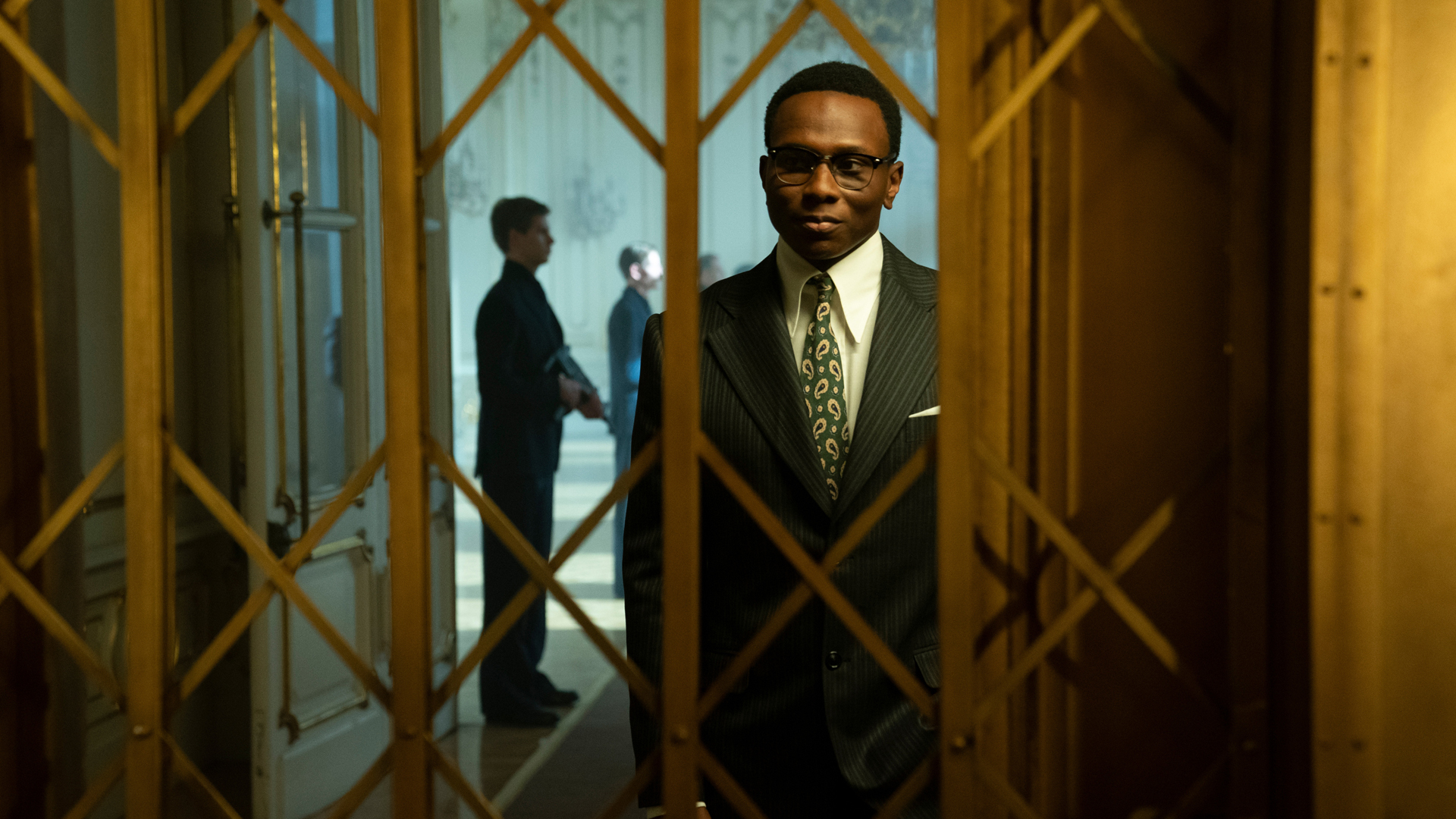
Set across a 72-hour period in the 1970s, The Continental charts the rise of Winston Scott (Colin Woodell) from British socialite to New York manager of the titular assassins-only hotel chain.
Pulled back into a life he thought he’d left behind by Cormac (Mel Gibson), the hotel’s current and ruthless owner, Winston is forced to track down his estranged brother Frankie (Ben Robson) after the latter steals an object vital to The Continental’s entire enterprise. Unbeknownst to Winston, events that transpire and alliances he forms throughout this three-day period will shape him into the morally gray character depicted in the John Wick movies.
Speaking of the films preceding it, The Continental isn’t a prequel movie trilogy in the vein of, say, Star Wars Episodes I through III. Yes, the miniseries’ three installments are unconventionally long, with their 80 to 97-minute runtimes akin to feature films of the 80s and 90s. Such episodic lengths might seem superfluous, but, contextually, the show’s plot functions better as a three-parter than a traditional six to eight-episode series. It’s a spin-off that’ll stake a claim for a spot in our best Prime Video shows guide than its best Prime Video movies cousin, then.
The Continental is a fun if somewhat creatively challenged companion piece
The Continental isn’t solely inspired by movie runtimes of decades gone by, either. The John Wick series is set in an alternate reality, but one grounded in a universe similar to ours. This analogous characterization allows The Continental to draw on real-world historical events, such as the Vietnam War and the New York Garbage Strike, to imbue its skewed version of the iconic US city with a grimy, edgy, almost impish aura. Clear references to the wider John Wick universe – one steeped in a mythos that’s ripe for exploration in any number of spin-offs – including the High Table and exclusive currency used by the underworld, further cultivate ties to what’s come before.
Sign up for breaking news, reviews, opinion, top tech deals, and more.
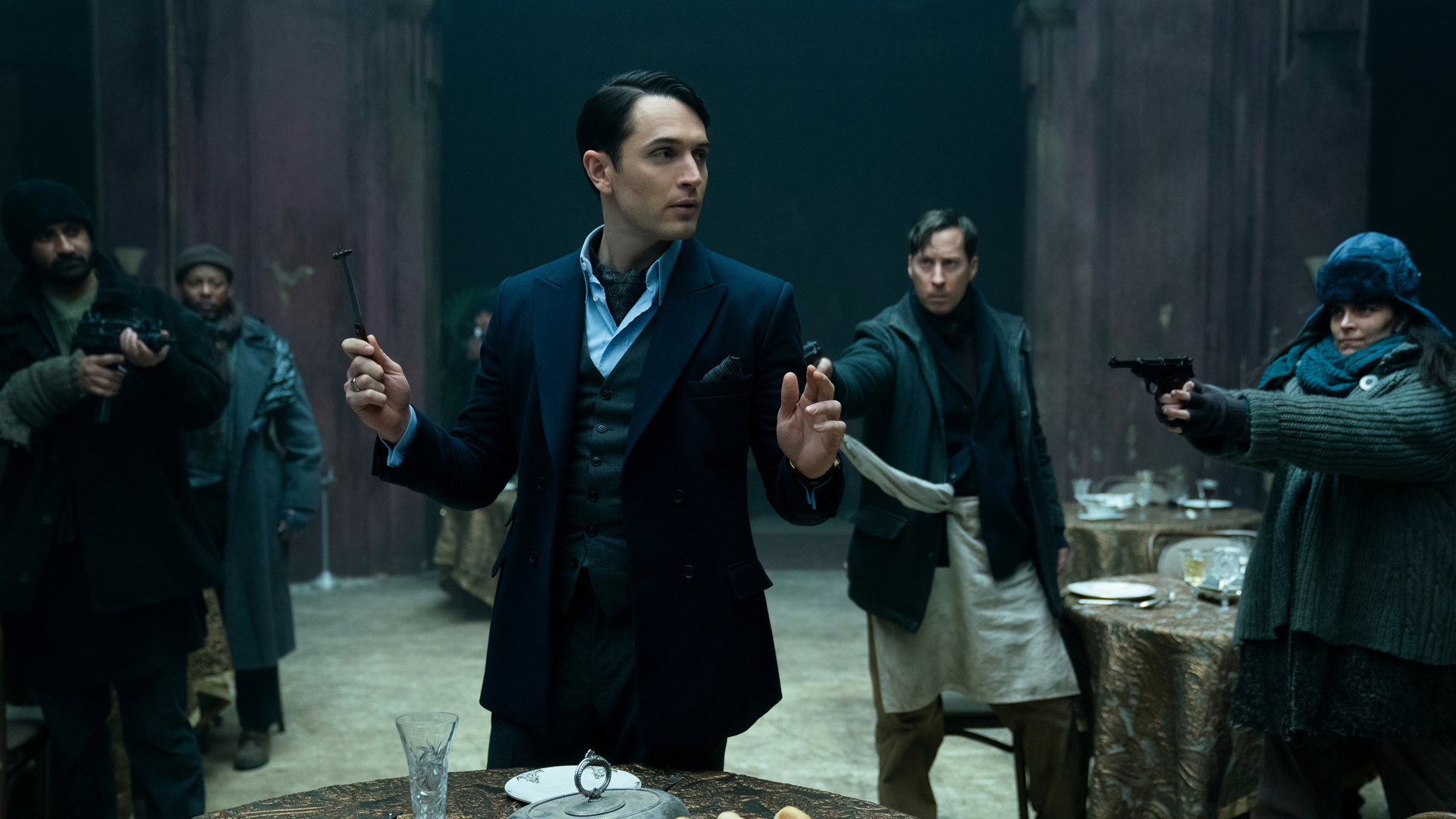
And then there’s the franchise’s calling card – aka its bruising, gratuitously violent action. The Continental’s gunfights and close-quarters combat maintain the brutality and vibrant creativity of its movie forebears. There are evident homages to the series’ celebrated and elaborate set-pieces, such as John Wick Chapter 4’s unrelenting Sacré-Cœur stair sequence being retrofitted for a complex, Frankie-centric stairwell fight in ‘Brothers in Arms’, the show’s first entry. It’s an in-your-face spectacle equally reminiscent of pulsating high-rise-building-set action films like 2011’s The Raid and 2012’s Dredd, with Frankie forced to battle his way out of The Continental with his stolen item.
The most thrilling and suspense-filled action sequences are reserved for the miniseries’ explosive finale. Titled ‘Theater of Pain’, it’s packed with fraught, hyper-violent fights that turn the bloodbath dial up to 11. That’s to be expected when 87eleven – the industry-leading stunts studio co-owned by Stahelski, which worked on the franchise’s four flicks – was hired to craft The Continental’s bold, fast-paced combat.
Adegun’s captivatingly composed and charming portrayal of Charon is gratifying
Contrarily, some bone-crunching action sequences feel fanciful, even for a series that blurs the lines between realism and fantasy. A dreamscape-style, monochromatic car chase sequence in the first episode is choppy in its design, which makes for an off-putting extended clip. The tension in Theater of Pain’s episode-spanning action slowly dissipates as it becomes increasingly clear that certain characters, some of whom you might expect to perish, are sheathed in plot armor. It’s a gripe that makes some of the show’s heroes feel bizarrely invincible and the hotel’s collection of assassins amateurish by comparison. Throw in the use of aggressive, shaky camerawork and a lack of the John Wick series’ signature gun-fu warfare, and The Continental’s combat isn’t as stylishly clean or kinetic as you may expect.
New and returning faces
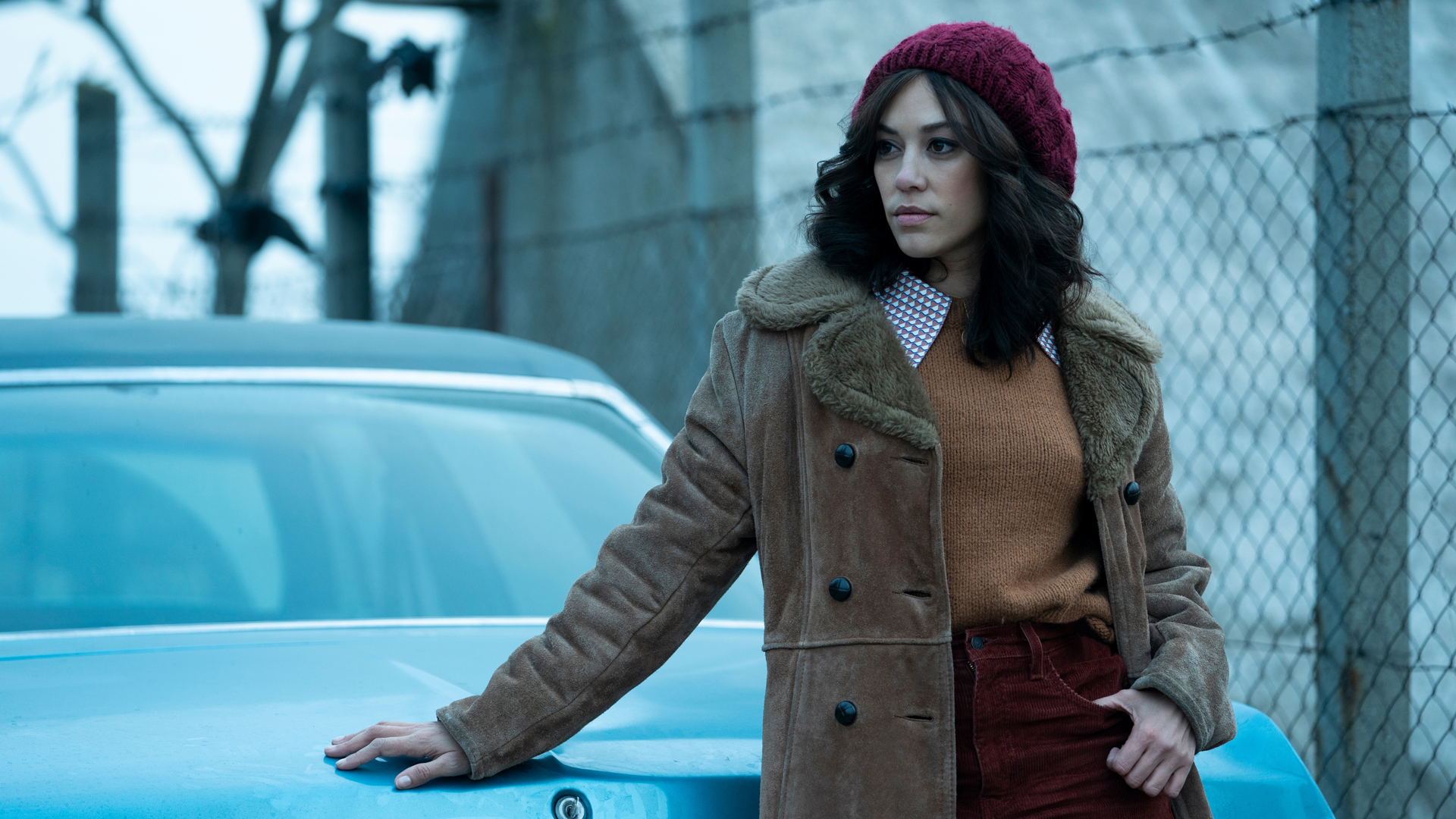
As a prequel, The Continental doesn’t reunite audiences with characters from the John Wick films. However, its place on the timeline enabled it to peel back the layers of Winston and Charon’s relationship, which is one of the most enduring and loyal friendships in the movies.
The problem The Continental has – and it’s not the only time the show commits this particular cardinal sin, but I’ll circle back to it later – is that it doesn't dedicate enough time to exploring the pair’s shared history. Aside from a brief convivial encounter early in episode 1, Winston and Charon (the latter’s younger self is intriguingly played by Ayomide Adegun here) don’t interact as much as I’d hoped. It’s a partnership that’s belatedly given more airtime in ‘Theater of Pain’, but it’s not satisfyingly examined as The Continental transitions from a dramatic period piece to an action extravaganza.
Some bone-crunching action sequences feel fanciful
This issue extends to the show’s primary and incendiary dynamic between the Scott brothers and Cormac. Instead of being the focal point around which The Continental’s other narrative threads are woven into its tapestry, it’s a fiery feud that’s disappointingly sprinkled through the plot. The miniseries drops story-based breadcrumbs about how Winston and Frankie become mixed up with Cormac, the brothers’ subsequent schism, and other flashback scenes that foreshadow events to come if you’re observant enough. And, while these callbacks add weight to exchanges between the siblings, and any involving the duo and Cormac, I felt let down by the scarcity of these volatile tête-à-têtes.
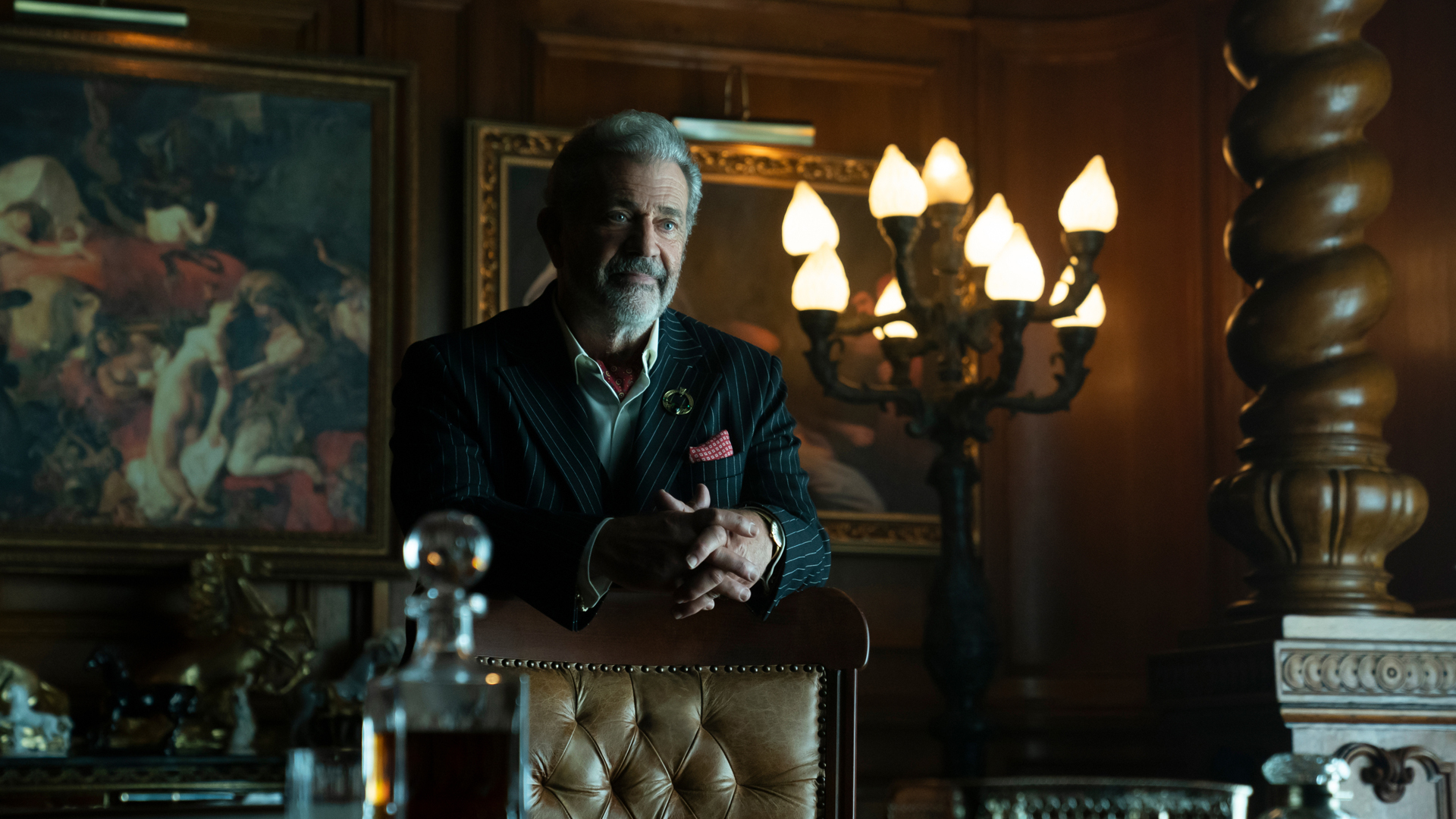
That said, Gibson’s involvement looms large over The Continental for the wrong reasons. His casting in October 2021, which came years after Gibson was accused anti-semitic, racist, and misogynistic comments, sparked a fierce backlash online. Gibson has vehemently denied making – and in some cases apologized for – such remarks, while The Continental’s directors have defended his controversial hiring ahead of the show’s launch. Still, I suspect there’ll be viewers who, like me, are unsettled by his presence, despite Gibson bringing callous and calculating gravitas to the character of Cormac.
As for the rest of the cast, they shine to varying degrees. Woodell’s Winston is as suave and sophisticated as Ian McShane’s movie version, albeit one permeating youthful exuberance and understated resourcefulness. There are shades of McShane’s iteration within his makeup – namely, a simmering vengeful side and valuable negotiating skills (a fighter, Winston is not) – but the extra dimensions Woodell brings to the table are pleasingly effective. Adegun’s captivatingly composed and charming portrayal of Charon is equally gratifying, as well as being movingly respectful to the late Lance Reddick’s turn as the fan-favorite concierge.
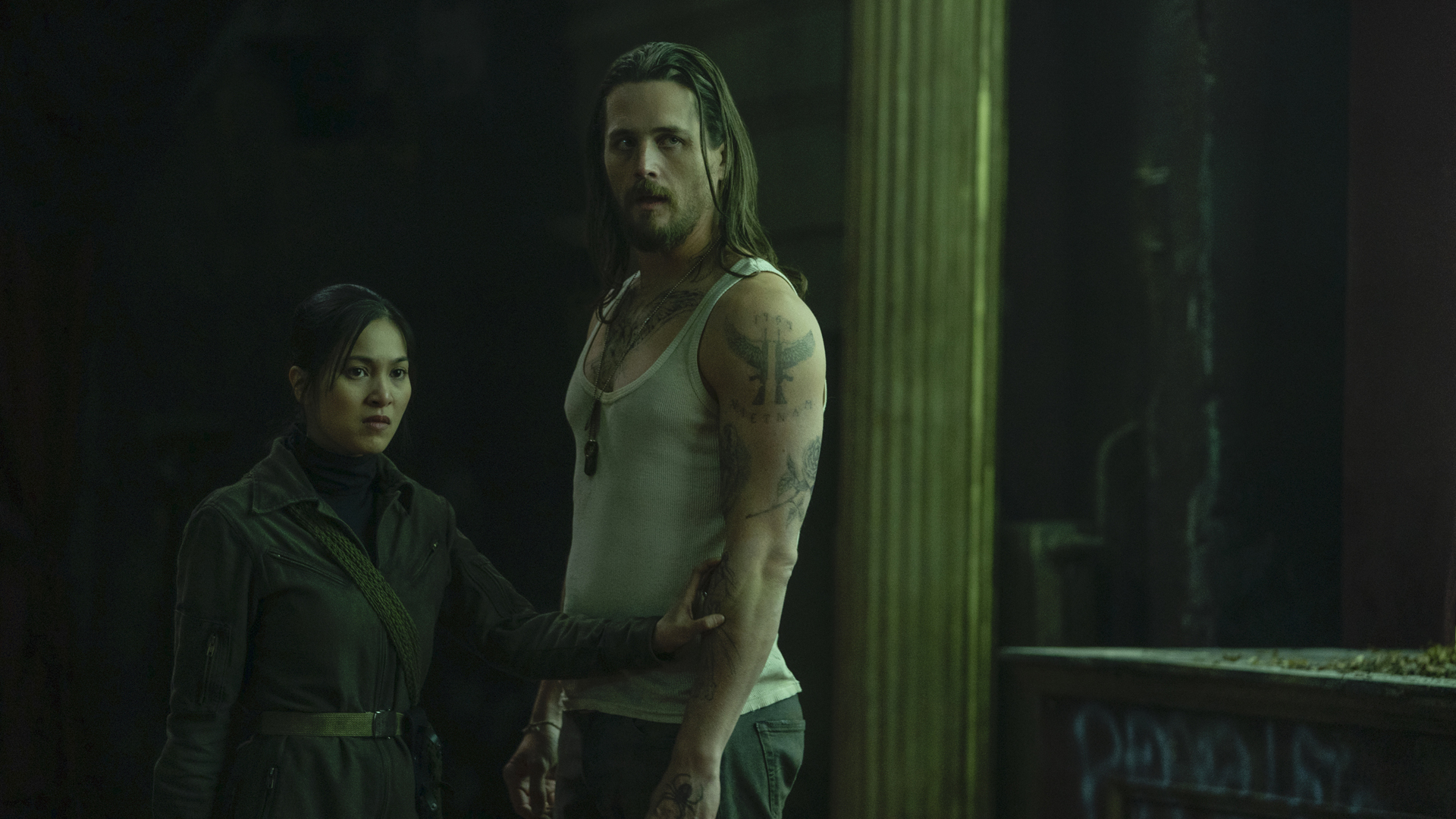
Complications begin to arise, however, with the introduction of the show’s wider supporting cast. That’s not through any fault of their own, mind you, nor does it mean they don’t deliver fascinating performances. Mishel Prada delights as KD, a hardboiled police detective hellbent on tracking down Winston for spoiler-filled reasons. Nhung Kate’s fiercely protective Yen, a Vietcong veteran who becomes Frankie’s wife, is equal parts heart and deadly tour de force – an electric combination for someone seeking their own form of revenge.
No, The Continental’s cast-based issues are two-fold. Initially, their introductions seem superfluous to the primary plot. It’s not until episode 2 (‘Loyalty to the Master’) where most of them join Winston’s cause – think of it as an ensemble team-up movie in the mold of The Expendables – that their appearances feel necessary.
The show functions better as a three-parter than a traditional six to eight-episode series
Even then, problems persist. As The Continental becomes more concerned with pulling these individuals into Winston’s orbit, it casts aside the Scott brothers’ tragic backstory and, particularly in ‘Loyalty to the Master’, begins to lose sight of its primary objective. That being, pitting Winston against his archenemy Cormac and revealing how the former becomes the titular hotel’s new manager.
Indeed, the show’s exploration of supporting characters’ histories is spread too thin, meaning there isn’t much scope to emotionally invest in their personal journeys or backstories. Some, such as the Miles (Hubert Point-Du Jour) and Lou’s (Jessica Allain) family-run dojo subplot, and the sibling drama it establishes, are laid on too thick. KD’s adulterous relationship with fellow police officer Mayhew (Jeremy Bobb) is a plot thread that, one or two important story details aside, is largely redundant. By contrast, other storylines, including Winston and Frankie’s fractured bond, lack thematic and emotional scrutiny to thrill or affect viewers.
My verdict
The Continental: From the World of John Wick is a fun if creatively challenged companion piece to the franchise’s films (find out how to watch the John Wick movies in order while you’re here). Its gritty, neo-noir aesthetic, action-packed narrative and sporadic dark comedy moments do help it largely retain the stylishness of its movie brethren.
However, inconsistencies in its story structure and thinly-spread character development prevent it from being a top-tier TV show. Furthermore, viewers expecting a similar experience to the franchise’s movies, wherein John Wick wages a one-man war against the established elite – or, in some instances, tries to survive a bounty on his head – may be dissatisfied.
Admittedly, these complications don’t completely impede The Continental’s ability to entertain and prove the franchise can exist without Reeves’ esteemed hitman. Overall, though, I’m not fully convinced The Continental demonstrates that the John Wick series can continue its upward trajectory sans the titular character.
The Continental: From the World of John Wick’s first episode premieres on Peacock in the US and Prime Video internationally on Friday, September 22. Episodes 2 and 3 arrive on September 29 and October 6.
As TechRadar's senior entertainment reporter, Tom covers all of the latest movies, TV shows, and streaming service news that you need to know about. You'll regularly find him writing about the Marvel Cinematic Universe, Star Wars, Netflix, Prime Video, Disney Plus, and many other topics of interest.
An NCTJ-accredited journalist, Tom also writes reviews, analytical articles, opinion pieces, and interview-led features on the biggest franchises, actors, directors and other industry leaders. You may see his quotes pop up in the odd official Marvel Studios video, too, such as this Moon Knight TV spot.
Away from work, Tom can be found checking out the latest video games, immersing himself in his favorite sporting pastime of football, reading the many unread books on his shelf, staying fit at the gym, and petting every dog he comes across.
Got a scoop, interesting story, or an intriguing angle on the latest news in entertainment? Feel free to drop him a line.
